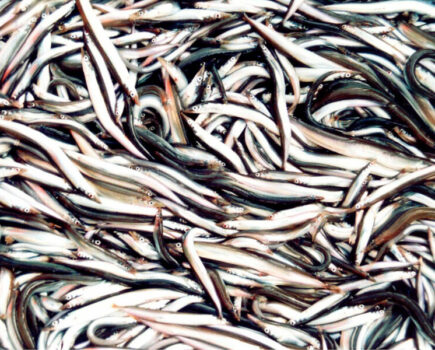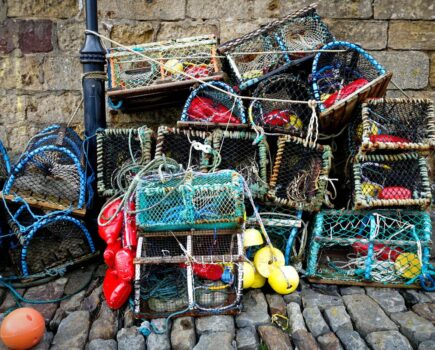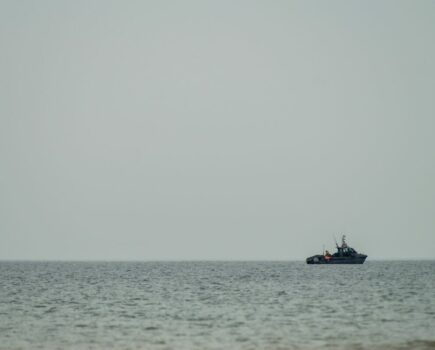Businesses ‘will look to consolidate’
A Scottish industry leader has warned that there is a big shortfall in some key quotas for whitefish vessels this year that will see some boats without enough quota to last the year, reports Tim Oliver.
He does not believe there will be enough quota available from any exchanges with the EU that may be negotiated this year, following the UK-EU fisheries deal that was concluded this month, to compensate for the shortfall. He expects some businesses will look to consolidate or merge with others in a similar position to survive.
The sector is already struggling with quota shortages caused by the failure to reach fisheries agreements with Norway and Faroe for 2021.
Mike Park, chief executive of the Scottish White Fish Producers’ Association (SWFPA), said he had done some work for a presentation to MSPs on comparing quota allocations to Scottish POs this year with their actual catches last year.
For key species such as cod, saithe, hake and ‘Norwegian others’, there was a shortfall in value of £23m relative to the POs’ catches of these species in 2020, which it would not be possible to make up with increased catches of other species such as Nephrops, plaice and haddock.
“Some will say you’ve got all those other species to catch and you’ve got additional quota for that, but these are species we were freely fishing on before, and the chances are we won’t be catching any more of them,” the SWFPA chief told Fishing News.
“The species that we do need, we don’t have enough of. To try to offset that loss in financial terms just doesn’t make sense. It’s a big gap to fill, and it can’t just be filled by fishing harder on other species, because you’re fishing harder for them anyway.
“Some vessels are going to find it difficult, and some businesses will fail.”
Reflecting on the UK-EU deal, where both sides committed to facilitating quota exchanges urgently, Mike Park said he expected there would be deals this year, but not to the extent that POs would have been able to arrange with their EU counterparts under the pre-Brexit system, where all unused quota was exchanged.
“I can’t see that the governments can transact in the same way the POs did,” he said. “The POs had the knack of extracting every piece of fish out of the EU they wanted. There were some really imaginative deals that the government will not be able to facilitate because they do not have the expertise.
“The Commission have made it clear they don’t want to do it, and will legally mandate the member states to deal with the UK in isolation.
“If the government were strong enough to stand back and operate the old system where the POs consulted and they mandated the deals, I would imagine things would get back to some semblance of normality. That said, it’s difficult to see how we can get back to that flow of quota that we’ve seen before.”
He said the Scottish government was allowing idealism to overcome reality in relation to quotas, because it has set a mandate in negotiations for additional quota to come into the UK without costs.
But he said in the current period of change and quota shortages, ‘we should put those ideals on the shelf for a wee bit and get what we can in the meantime – certainly over the next two or three years before working out longer-term arrangements’.
“A number of vessels are really in survival mode, and they probably won’t get enough to keep them going to the end of the year, so there is a view that consolidation of some kind will be required this year,” he said.
“Most businesses in Scotland, and I guess the rest of the UK, are family-owned – it’s a tradition – and if some of these families look around and realise they don’t have enough to exist, and then see other family businesses in the same position, they will look to consolidate.
“The question is, what can we do to facilitate the merging of family businesses? What sort of funding does it take, what mechanisms can we use to do that, to assist the industry to reshape itself?”
He said the industry was not asking for a decommissioning scheme, but ‘some funding to oil the wheels of consolidation’.
A decommissioning scheme would not be politically possible, because it would be incompatible with the support for new entrants to the industry through the new Marine Fund Scotland, which allows fishers under the age of 40 to apply for up to 75% of the purchase of an existing vessel with a registered length of up to 16m.
The number of new boats joining the Scottish fleet, albeit that they were ordered two or three years ago, also ran counter to a decommissioning scheme, he said.
Mike Park said no formal approach had been made for funding to assist consolidation because big issues such as Brexit and Covid had been dominating fishing politics, but ‘we have dropped it into the political conversation’.
He said some of the £100m fund Boris Johnson had announced for the industry last year could be used to help with restructuring.
Commenting on the UK-EU fisheries deal overall, he said much of it had been determined by the Brexit TCA.
“It seems to me that while we’re out of the EU, the EU still wants us to behave like a satellite state, and it would seem the UK hasn’t got the resolve to stand up for their own cause,” he said.
“While there are many things that it’s useful to have agreed so we don’t have to spend weeks and months this year going over the same thing, it does nevertheless mean that we have agreed to something less than we should have done.”
This story was taken from the latest issue of Fishing News. For more up-to-date and in-depth reports on the UK and Irish commercial fishing sector, subscribe to Fishing News here or buy the latest single issue for just £3.30 here.








